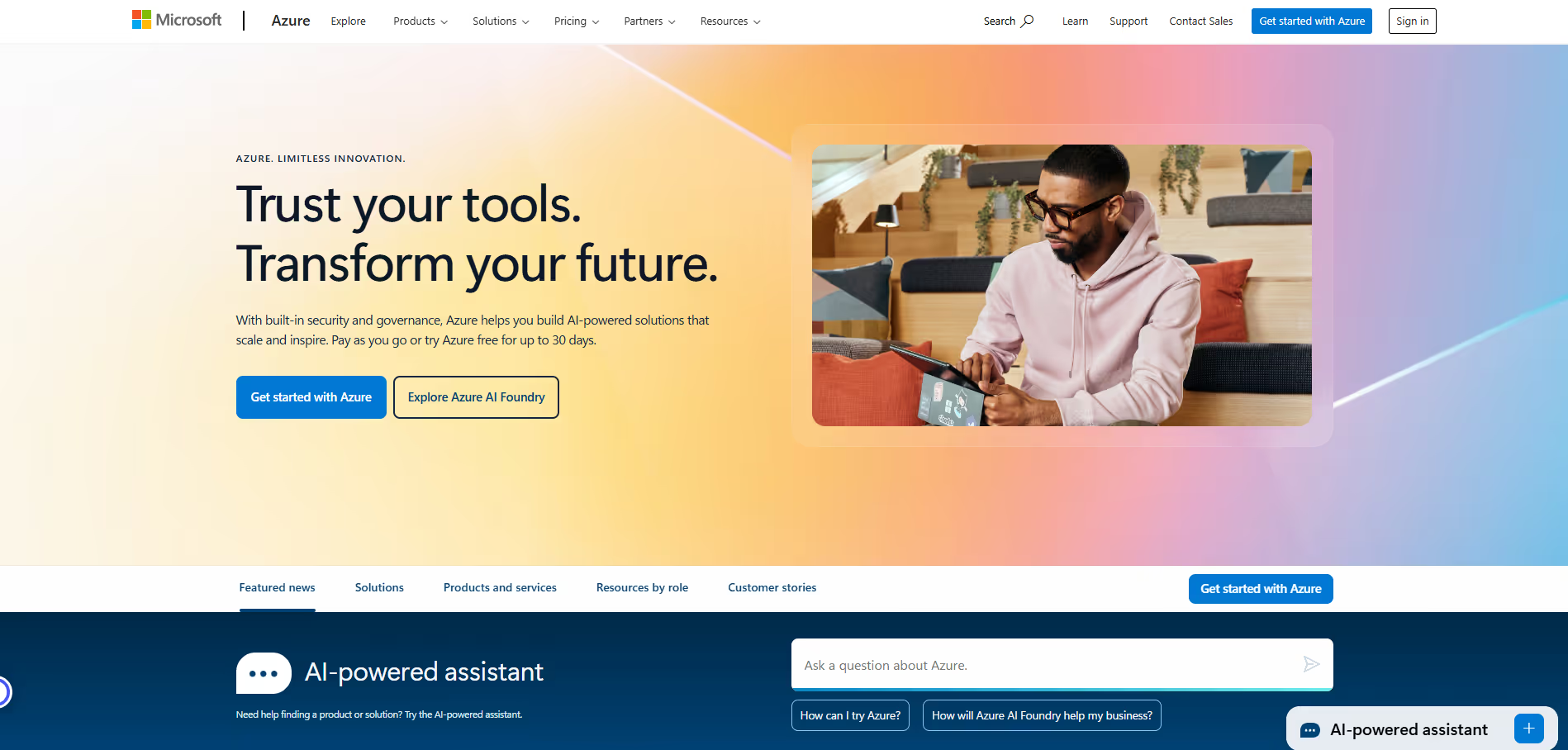Microsoft Azure
Description
Key Applications
- Infrastructure as a Service (IaaS): Hosting virtual machines, networking components, and storage for flexible, scalable infrastructure.
- Platform as a Service (PaaS): Providing environments for application development, deployment, and management without the complexity of underlying infrastructure.
- Data and Analytics: Offering managed databases, data warehousing, big data processing, and analytics services. Artificial Intelligence and Machine Learning: Providing AI/ML services, cognitive APIs, and tools for building and deploying intelligent applications. Internet of Things (IoT): Solutions for connecting, monitoring, and managing IoT devices and processing IoT data at scale.
Who It’s For
Pros & Cons
How It Compares
- Versus AWS: Azure often appeals more to enterprises with existing Microsoft licenses and infrastructure, offering seamless integration with Windows Server, SQL Server, and Active Directory. While AWS is known for its breadth of services and market leadership, Azure competes strongly on hybrid cloud capabilities and enterprise-grade support.
- Versus Google Cloud Platform (GCP): Azure provides a more mature set of enterprise features and a stronger hybrid cloud story compared to GCP. GCP excels in areas like machine learning and open-source technologies, but Azure offers a broader range of global data centers and industry-specific compliance certifications.
Bullet Point Features
- Virtual Machines (Windows and Linux) Azure App Service for web and mobile apps Managed SQL Database, Cosmos DB, and other data services Azure Machine Learning and Cognitive Services Azure IoT Hub and IoT Central Azure Functions (serverless compute) Azure Kubernetes Service (AKS) Azure Active Directory for identity and access management Global network of data centers and Content Delivery Network (CDN) Advanced security features and compliance certifications
Frequently Asked Questions
Find quick answers about this tool’s features, usage ,Compares, and support to get started with confidence.

Microsoft Azure is a cloud computing platform and service that provides a wide range of infrastructure, platform, and software services. It helps businesses and developers build, deploy, and manage applications and services on a global network of Microsoft-managed data centers.

Azure offers tools for virtual machines, databases, storage, networking, AI, analytics, and IoT, enabling organizations to scale applications, reduce infrastructure costs, and enhance security. It supports hybrid cloud solutions and seamless integration with existing Microsoft products.

Microsoft Azure provides IaaS (Infrastructure as a Service), PaaS (Platform as a Service), SaaS (Software as a Service), AI & machine learning tools, DevOps services, databases, security solutions, and CDN services. It caters to diverse computing and storage needs.

While Azure has a wide array of complex services, it is beginner-friendly for those starting with cloud computing through intuitive dashboards, tutorials, documentation, and free trial offerings. Beginners can deploy simple applications and gradually explore advanced features.

Azure is ideal for developers, IT professionals, enterprises, startups, and businesses of all sizes. Users can expect scalable cloud infrastructure, global reach, robust security, flexible pricing, and a comprehensive suite of development tools, helping them innovate and manage resources efficiently.





.avif)




